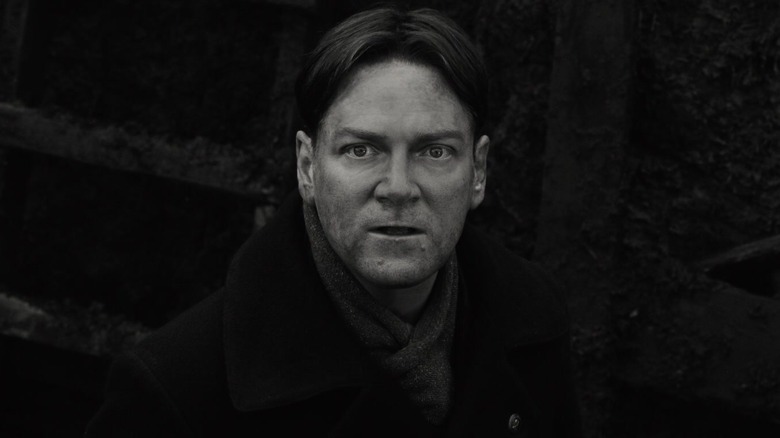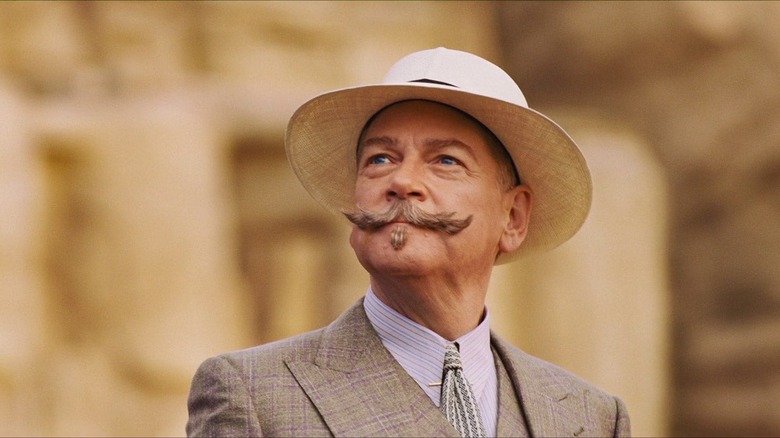Death On The Nile: What Was The Point Of The Opening Scene?
When it comes to film adaptations, many aspects of a literary series can be changed to add additional layers to the source material. Often, fans have seen characters receive backstories explaining who they are in the current timeline and why they do what they do. From the sad childhood of The Grinch to the heartwarming relationship Maleficent has with Aurora, such origins can bring forth extra perspectives.
In the "Hercule Poirot" mystery stories written by Agatha Christie, the Belgian detective is simply an eccentric man who solves crimes and helps bring perpetrators to justice. However, the new films — directed by Kenneth Branagh, who also plays the lead role — take Hercule to another level. Whereas Christie left his origins up to interpretation, 2022's "Death on the Nile" depicted the deaths of his friend and fiancée. These scenes left Hercule scarred, both physically and mentally, helped audiences understand the tragic nature of the character, and showed just why his mustache was more than important than fans may think.
Hercule Poirot is a tragic character
"Death on the Nile" opens with a black-and-white scene, where a mustached commander (Orlando Seale) leads during World War I. Though he bears a resemblance to Hercule, he is actually the superior and friend to the future detective. Hercule is a young soldier. He gets his men across the trenches, though it results in the commanding officer dying and Poirot's face becoming scarred. Later, he sees his fiancée, Katherine (Susannah Fielding), who breaks the news, and even suggests he grow a mustache to cover his injury.
While losing a friend is a horrible experience, this is not the last of Hercule's troubles. During the film's main events, he reveals to Salome Otterbourne (Sophie Okonedo) that Katherine died on a train years before. He has never gotten over the loss, and it's because of this, that he doesn't get entangled in romantic endeavors.
Though different from Christie's books, both of these events serve a purpose in rounding out Hercule as a character. These scenes show that he is much more than a quirky detective with unique facial hair and an indifference to romance. He dons a similar mustache to honor his commanding officer and rejects affection because he feels so much guilt over his lost love. He is a man who is guided by his past, and though he does his hardest to help others, he doesn't allow himself to move on, even if it means sacrificing his happiness.

